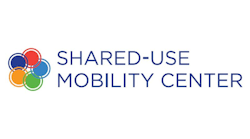National Study to Explore Impacts of UberPool, Microtransit, Tech Shuttles & Other Forms of Private Transit
The Shared-Use Mobility Center (SUMC) has been selected by the Transportation Research Board (TRB) to conduct a new study exploring the effects of private transportation services in the U.S.
The research project will focus on new forms of private transit – including ride-splitting services such as UberPool and Lyft Line, on-demand carpooling apps such as Carma and Scoop, and “microtransit” services such as Bridj, Chariot and Via – as well as more traditional private modes such as employer shuttles, ridesharing programs and licensed and unlicensed jitney services.
“Since the emergence of new, tech-enabled transportation services, very little research has been done on the private transit market in the U.S.,” said SUMC Executive Director Sharon Feigon. “As a result, our understanding of these services’ impact on critical issues such as traffic congestion, use of street space, public transit operations and consumer mobility is extremely limited. This project will help to benchmark this growing sector and identify ways to increase its public benefit and expand mobility choices for a wide range of residents.”
The study – Transit Cooperative Research Program (TCRP) Project J-11/Task 24: “Private Transit Services and Public Transportation” – will also provide valuable information to help cities address challenges related to existing private transportation services and build new cross-sector relationships with operators.
To support these objectives, the final research report will feature a number of components, including:
- A taxonomy of existing private transportation services
- An evaluation of existing and potential business models for these services, including an assessment of their economic viability in different conditions
- Case studies of private services, with an emphasis on those that complement or interface with public transportation systems
- Strategies that transit agencies and local governments can implement to maximize the public benefits of these services while minimizing any negative effects on residents
To complete the project, the research team will conduct interviews with public and private-sector stakeholders, survey private transit users, perform a review of enforcement and regulatory data, and complete a community impact analysis.
The study follows the release of another widely cited research project completed by SUMC on behalf of TRB – TCRP Research Report 188: Shared Mobility and the Transformation of Public Transit – which examined the relationship between public transportation and new forms of shared mobility. A second phase of this study, expanded to include new analysis and data, is scheduled for release in 2017.

